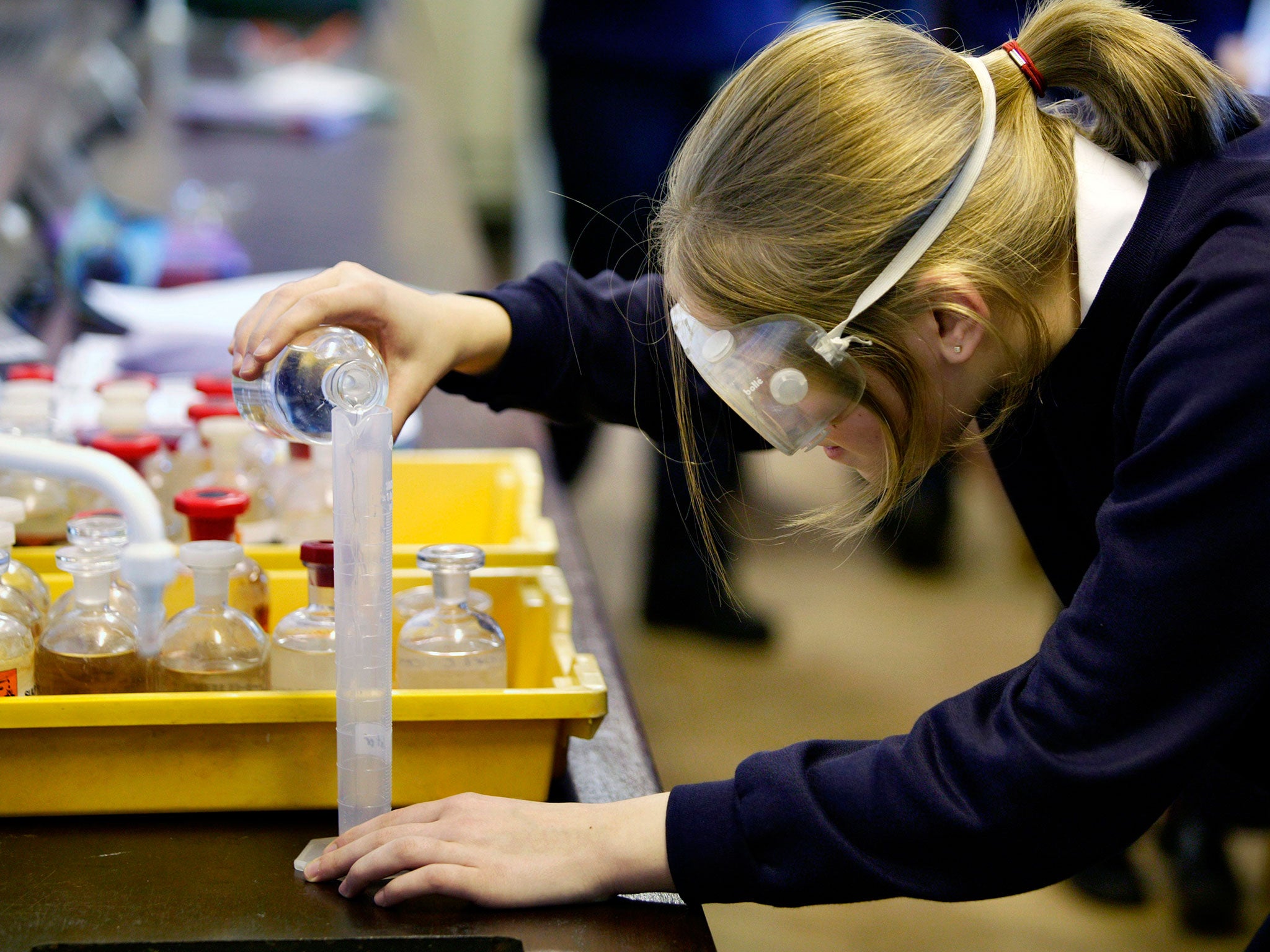Women are less likely to become scientists because of a 'misconceived idea of brilliance', study finds
Genius is seen in characters such as Sherlock Holmes, while female intelligence is shown as a result of hard work, exemplified by Hermione Granger

Your support helps us to tell the story
From reproductive rights to climate change to Big Tech, The Independent is on the ground when the story is developing. Whether it's investigating the financials of Elon Musk's pro-Trump PAC or producing our latest documentary, 'The A Word', which shines a light on the American women fighting for reproductive rights, we know how important it is to parse out the facts from the messaging.
At such a critical moment in US history, we need reporters on the ground. Your donation allows us to keep sending journalists to speak to both sides of the story.
The Independent is trusted by Americans across the entire political spectrum. And unlike many other quality news outlets, we choose not to lock Americans out of our reporting and analysis with paywalls. We believe quality journalism should be available to everyone, paid for by those who can afford it.
Your support makes all the difference.Women are less likely to become scientists and engineers because they are taught to believe that these professions require innate intellectual brilliance rather than sheer hard work, a study has found.
The academics behind the research suggest that a misconceived idea of brilliance is holding back girls from taking subjects such as physics, engineering and mathematics in favour of "softer" subjects such as humanities, languages and social sciences.
They believe the findings are mirrored in popular representations of brilliance, with innate genius represented by fictional male characters such as Sherlock Holmes, while female intelligence is frequently shown as the result of hard work and swatting, as exemplified by Hermione Granger.
The researchers support their conclusions with findings from a survey of 1,800 graduate students and university teachers from 30 academic disciplines showing that women are significantly under-represented in subjects where their teachers put a premium on the need for innate brilliance.
"We're not saying brilliance, or valuing brilliance, is a bad thing. And we’re not saying women are not brilliant or that being brilliant isn’t helpful to one’s academic career," said Professor Andrei Cimpian, a psychologist at the University of Illinois in Champaign.
"We are also not arguing that women are less brilliant than men. There is no convincing evidence in the literature that men and women differ intellectually in ways that would be relevant to their success in the fields we surveyed," Professor Cimpian said.
"According to our hypothesis, female under-representation is not the result of actual differences in intellectual ability, but rather the result of perceived or presumed differences between men and women," he said.
"We found that women were indeed less likely to obtain PhDs in fields that idolise brilliance and genius. This hypothesis was better able to explain the data on women’s representations than several of the prominent hypotheses that a currently available," he added.
The study, published in the journal Science, found that women might be put off by the teachers of subjects such as physics and maths where there is an emphasis on the need to be brilliant in order to succeed – a quality of "unschooled genius" that is widely perceived to be lacking in women, the researchers said.
"Women who are portrayed as intellectually accomplished tend, like Hermione Granger, to also be portrayed as incredibly hard working and diligent," said Sarah-Jane Leslie, a philosopher at Illinois who took part in the research.
"Women’s accomplishments are seen as grounded in long hours poring over books, rather than in some kind of raw brilliance," Dr Leslie said.
The researchers found that women earned fewer PhDs than men in academic fields such as physics and maths that emphasise the need for this kind of intellectual brilliance.
Less than 30 per cent of physics, astronomy and computer science doctorates went to women whereas 60 or 70 per cent of PhDs in education, psychology and anthropology went to women.
Traditionally, the lack of women in certain scientific professions was put down to three possible causes: the need to work long hours, the need of intellectual aptitude or the need to think abstractly and systematically, Dr Leslie said.
"We found that none of these alternative hypotheses were able to predict women’s representations across the entire academic spectrum," Dr Leslie said.
"A strong emphasis on brilliance among practitioners of particular fields was the best predictor of women’s under-representation in those fields," she explained.
Join our commenting forum
Join thought-provoking conversations, follow other Independent readers and see their replies
Comments